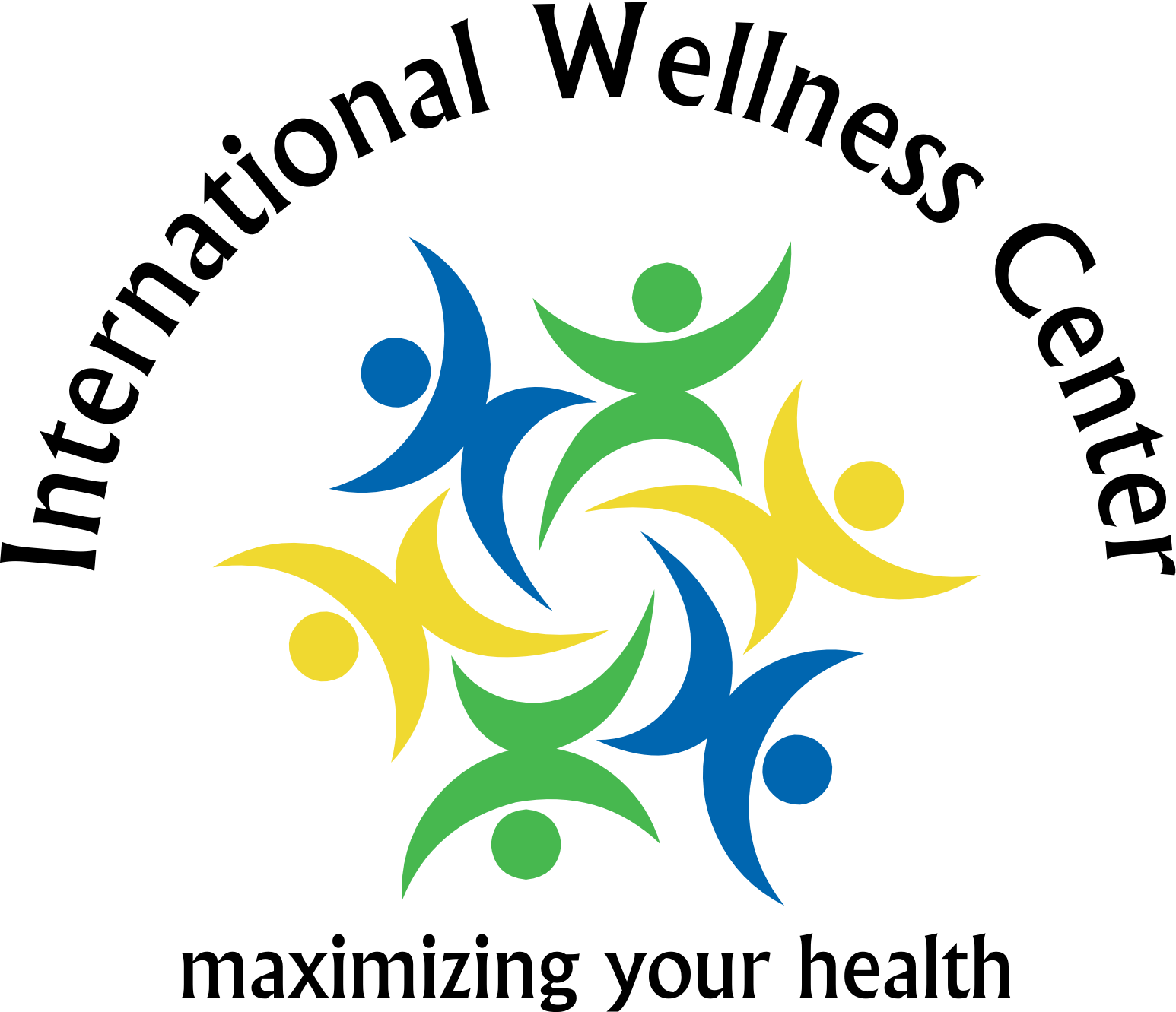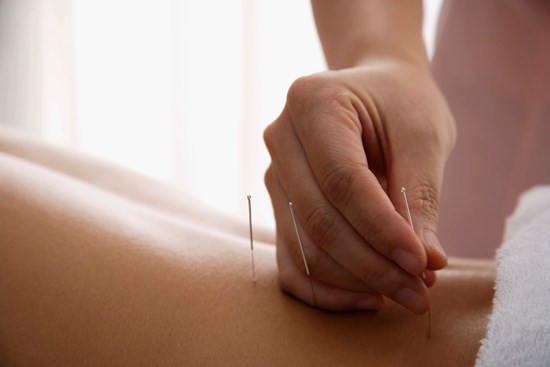Acupuncture
Overview of Acupuncture
What is Traditional Chinese Medicine?
TCM is the fundamental cornerstone and basis for the practice of Oriental Medicine, which includes Acupuncture, Chinese herbology and Tui-Na (Chinese massage and bodywork). This full system of medicine, along with its ancient diagnostic techniques, has an impressive history that dates back over 2500 years. Oriental medicine balances energy levels in the body the same way Western medicine balances chemistry levels in the body. Both eastern and western medicine agree that balance, or homeostasis is necessary for optimal health.
How does Acupuncture work?
Acupuncture is one of the key components of the system of traditional Chinese medicine (TCM). In the TCM system of medicine, the body is seen as a delicate balance of two opposing and inseparable forces: yin and yang. Yin represents the cold, slow, or passive principle, while yang represents the hot, excited, or active principle. Among the major assumptions in TCM are that health is achieved by maintaining the body in a "balanced state" and that disease is due to an internal imbalance of yin and yang. This imbalance leads to blockage in the flow of Qi (vital energy) along pathways known as meridians. It is believed that there are 12 main meridians and 8 secondary meridians and that there are more than 2,000 acupuncture points on the human body that connect with them. Acupuncture is the ancient Eastern science and art of directly balancing and manipulating your energy levels to bring them into balance.
Qi(vital energy) surround the human body. In western medicine, the grossest of these are measured with devices like EKG (Electrocardiogram , a device to test the heart used by cardiologists), EEG (Electroencephalograph , a device used by neurologists to test the brain), EMG (Electromyograph, used to test the muscles and nerves) and many other devices. Science has long known that changes in body function can be evaluated by measuring changes in these energy fields. It is known that these fields change with the function and it has been demonstrated that function changes when these fields are directly manipulated. Acupuncture works by directly affecting the body's energy fields and thereby changing the function of the related systems.
What is the scope of Acupuncture?
Acupuncture is a system which can influence three areas of health care:
- promotion of health and well-being,
- prevention of illness,
- treatments of various medical conditions.
While acupuncture is often associated with pain control, in the hands of a well-trained practitioner it has much broader applications. Acupuncture can be effective as the only treatment used, or as the support or adjunct to other medical treatment forms in many medical and surgical disorders. The World Health Organization recognizes the use of acupuncture in the treatment of a wide range of medical problems, including:
- Neurological Disorders :Headache, Migraine, Neuralgia, Post-operative pain, Parkinson's disease, Multiple Sclerosis, Facial pain, Bell's palsy
- Musculoskeletal Disorders: Joint pain, Limb pain, Low back pain, Sciatica, Disc problems, Arthritis, Sprains and strain, Sports injuries, Muscle cramping, Localized traumatic injuries
- Digestive Disorders : Acid reflux, Abdominal pain, Indigestion, Diarrhea, Constipation, Belching, Flatulence
- Ears, Eyes and Nose Disorders: Common cold and Flu, Sinusitis, Tonsillitis, Bronchitis, Allergies, Asthma
- Gynecological Disorders: Impotence, Menstrual Syndromes, Menopause, Uterine Fibroids, Ovarian Cysts, PMS, Infertility
- Emotional Disorders: Insomnia, Depression, Anxiety, Nervousness, Neuroses
- Other possible benefits of Acupuncture: Stroke Rehabilitation, Increased vitality and energy, Stress reduction, Deep relaxation, Enhance the immune system, Enhanced athletic and physical function, Lower blood pressure, Control addictions
If you have questions about a specific illness or disorder not listed above, you can usually have your questions answered by an acupuncturist practicing in your area.
How widely is acupuncture used in the United States?
It comes as no surprise that the use of Acupuncture and Chinese herbs have gained such an enormous amount of media exposure over past two decades. The NIH, WHO and FDA have all given their stamp of approval on various aspects of the ancient practice of acupuncture. The report from a Consensus Development Conference on Acupuncture held at the National Institutes of Health (NIH) in 1997 stated that acupuncture is being "widely" practiced by thousands of physicians, dentists, acupuncturists, and other practitioners for relief or prevention of pain and for various other health conditions. Life magazine featured two cover stories "The Healing Revolution" and "The Healing Power of Touch" within a twelve-month period of time. Time magazine, U.S. News and World Report, Newsweek as well as the NY Times, Miami Herald and The Wall Street Journal have all featured articles about America's fascination and trend towards embracing this ancient medical art.
According to the 2002 National Health Interview Survey-the largest and most comprehensive survey of complementary and alternative medicine (CAM) use by American adults to date-an estimated 8.2 million U.S. adults had ever used acupuncture, and an estimated 2.1 million U.S. adults had used acupuncture in the previous year. Those numbers continue to grow.
How is Acupuncture done?
Tiny, sterile needles (about the size of a strand of hair) are inserted into the skin at very special points. These needles focus the energy of the body's energy fields the same way an antenna focuses radio energy. The needles are placed at the points that will balance the energies that will restore homeostasis to the body. It is important that the needles be placed in exactly the right place, since the location of the needles will determine how the energy field is changed. These special points occur where the energy fields of the body interact. Each system and organ will manifest its own energy level and can be weakened or strengthened by the energy fields around it. Acupuncture focuses these fields to bring them and the underlying body systems into balance.
Is acupuncture safe?
Yes. When acupuncture is done with disposable needles under clean, sterile conditions, and by a qualified practitioner, complications are very unlikely.
The U.S. Food and Drug Administration (FDA) approved acupuncture needles for use by licensed practitioners in 1996. The FDA requires that sterile, nontoxic needles be used and that they be labeled for single use by qualified practitioners only.
Relatively few complications from the use of acupuncture have been reported to the FDA in light of the millions of people treated each year and the number of acupuncture needles used. Still, complications have resulted from inadequate sterilization of needles and from improper delivery of treatments. Practitioners should use a new set of disposable needles taken from a sealed package for each patient and should swab treatment sites with alcohol or another disinfectant before inserting needles.
What does acupuncture feel like?
Acupuncture needles are metallic, solid, and hair-thin. People experience acupuncture differently, but most feel no or minimal pain as the needles are inserted. Some people are energized by treatment, while others feel relaxed. Improper needle placement, movement of the patient, or a defect in the needle can cause soreness and pain during treatment. That is, however, good sign because this is known as "De Qi" which means your energy has already been effectively manipulated and has started to flow inside the body as desired. This is why it is important to seek treatment from a qualified acupuncture practitioner.
Are there any side effects to the acupuncture treatment?
Usually not. As energy is redirected in the body, internal chemicals and hormones are stimulated and healing begins to take place. Occasionally the original symptoms worsen for a few days, or other general changes in appetite, sleep, bowel or urination patterns, or emotional state may be triggered. These should not cause concern, as they are simply indications that the acupuncture is starting to work. It is quite common with the first one or two treatments to have a sensation of deep relaxation or even mild disorientation immediately following the treatment. These pass within a short time, and never require anything more than a bit of rest to overcome.
How should I prepare for acupuncture treatments?
To enhance the value of a treatment, the following guidelines are important:
- Do not eat an unusually large meal immediately before or after your treatment.
- Do not over-exercise, engage in sexual activity, or consume alcoholic beverages within 6 hours before or after the treatment.
- Plan your activities so that after the treatment you can get some rest, or at least not have to be working at top performance. This is especially important for the first few visits.
- Continue to take any prescription medicines as directed by your regular doctor. Substance abuse (drugs and alcohol) especially in the week prior to treatments, will seriously interfere with the effectiveness of acupuncture treatments.
- Remember to keep good mental or written notes of what your response is to the treatment. This is important for your doctor to know so that the follow-up treatments can be designed to best help you and your problem.

